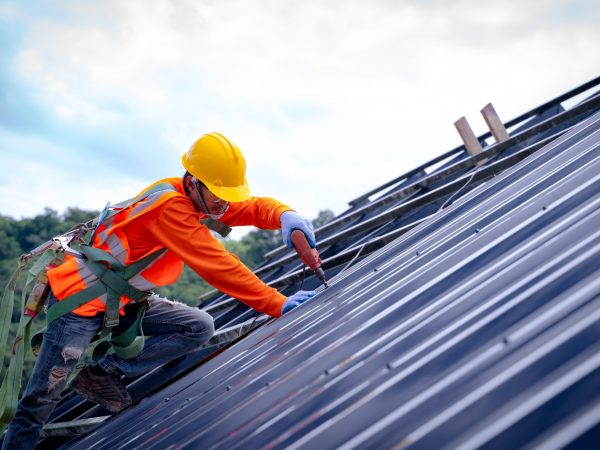Quick Take: Understanding the differences between commercial and residential roofing is essential for property owners. This guide explores key distinctions, considerations, and the best practices for choosing the right roofing solution in Denver and Colorado.
Navigating the World of Commercial vs Residential Roofing
When it comes to roofing, not all projects are created equal. Whether you’re a homeowner or a business owner, understanding the nuances between commercial and residential roofing can save you time, money, and headaches down the line. In this article, we'll dive deep into navigating the world of commercial vs residential roofing, examining everything from materials and installation to maintenance and costs.
Understanding the Basics of Roofing Types
Before we delve into comparisons, let’s clarify what sets commercial and residential roofing apart.
Residential Roofing Defined
- Target Audience: Homeowners Common Materials: Asphalt shingles, wood shakes, metal roofs Typical Structures: Single-family homes, townhouses, condominiums
Residential roofs are generally pitched or sloped to allow water runoff. They often feature various aesthetic options to enhance curb appeal.
Commercial Roofing Defined
- Target Audience: Business owners and property managers Common Materials: TPO (thermoplastic polyolefin), EPDM (ethylene propylene diene monomer), built-up roofing systems Typical Structures: Warehouses, office buildings, retail spaces
Commercial roofs are typically flat or low-slope surfaces designed to accommodate larger spaces with specific functional requirements.
Key Differences Between Commercial and Residential Roofing
Understanding these distinctions will help you make informed decisions when searching for roofers near me or Colorado roofers.

1. Design and Structure
The Roof repair design of a roof significantly affects its functionality. Residential roofs often have steeper pitches for drainage purposes while commercial roofs tend to be flat or minimally sloped. The choice of design impacts everything from material selection to construction methods.
2. Material Choices
While both types of roofs can use similar materials like metal or tile, they differ widely in common selections due to cost-effectiveness and durability needs:
- Residential Roofing Materials: Asphalt shingles: Affordable and versatile. Tile: Durable but heavy. Metal: Long-lasting with high resistance to weather conditions. Commercial Roofing Materials: TPO: Energy-efficient with reflective properties. EPDM: Known for its flexibility and waterproofing capabilities. Built-up systems: Multiple layers provide excellent protection but can be more labor-intensive.
3. Installation Techniques
Installation techniques vary significantly between residential and commercial projects. Residential work generally involves smaller teams that focus on aesthetics alongside functionality. Conversely, commercial roofing often requires larger crews equipped with specialized tools for larger-scale installations.

Cost Considerations in Commercial vs Residential Roofing
When exploring roofing companies near me for your project in Denver or elsewhere in Colorado, cost is a significant factor that varies based on several elements:
4. Upfront Costs vs Long-term Investment
- Residential roofing tends to have lower initial costs but may require more frequent repairs due to wear over time. Commercial roofs might have higher upfront costs due to their size but can last longer with fewer issues if properly maintained.
Maintenance Needs for Longevity
Proper maintenance is crucial regardless of whether you're dealing with commercial or residential roofing. However, the approach differs based on usage patterns:
5. Maintenance Practices
- For residential roofs: Regular inspections after severe weather events. Cleaning gutters to prevent water buildup. For commercial roofs: Scheduled inspections at least bi-annually. Immediate attention to any leaks or issues identified during routine checks.
Regulatory Compliance Differences
Both types of roofing must comply with local building codes; however, commercial structures may face additional regulations concerning safety standards that don’t apply as rigorously to residential properties.
Choosing the Right Roofing Contractor
Finding reliable roofers is crucial when embarking on your project. Here’s how to choose wisely:
6. What To Look For in Roofing Contractors?
- Experience: Seek contractors specializing in either commercial or residential projects based on your needs. Licensing & Insurance: Ensure they hold valid licenses and insurance coverage specific to their trade. References & Reviews: Look for social proof through customer testimonials or online reviews before committing.
FAQs About Commercial vs Residential Roofing
Q1: How do I know if I need a commercial or residential roof?
A1: The type of structure you own determines this—residential roofs are typically found on homes while commercial roofs cover businesses such as offices or warehouses.
Q2: What are common signs my roof needs repair?
A2: Look out for missing shingles, leaks inside your home/office space, visible sagging areas on your roof surface, or excessive granule loss from shingles.
Q3: Can I convert a residential roof into a commercial one?
A3: Yes! Depending on local zoning regulations and building codes; however, consult professionals first as this process may involve significant alterations.
Q4: How often should I have my roof inspected?
A4: Ideally every year; however more frequent assessments (twice yearly) are recommended in harsher climates like Colorado's mountain regions due to potential weather damage risks.
Q5: What are some eco-friendly options available?

Q6: Are there warranties associated with each type?
A6: Yes! Most manufacturers provide warranties ranging from 10 years up until lifetime coverage depending upon material choice—be sure to ask contractors about specifics!
Navigating the World of Commercial vs Residential Roofing — The Final Words
As we’ve explored navigating the world of commercial vs residential roofing throughout this article—it becomes clear that making informed choices depends heavily upon understanding your unique needs as well as those offered by various contractors available nearby!
With proper guidance from experienced Denver roofers—or even simply knowing how different aspects influence cost—you’ll find yourself well-equipped when tackling upcoming projects!
In conclusion—whether you're looking at asphalt shingles for your home’s pitched elegance or flat TPO membranes tailored specifically towards industrial applications—the right knowledge empowers homeowners & businesses alike towards satisfying solutions that stand tall against time!
Taking care of our rooftops means investing wisely today so tomorrow remains secure under sheltering skies!